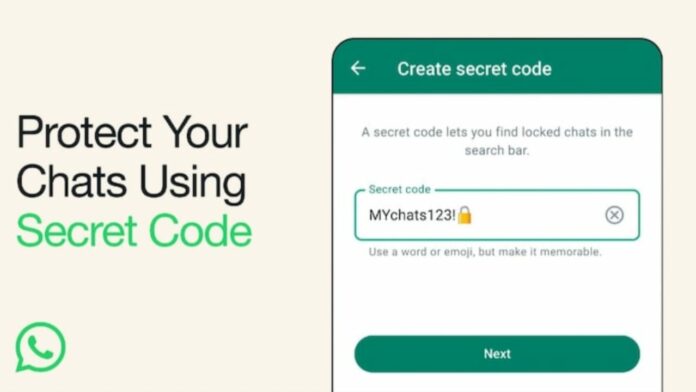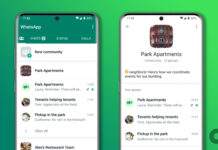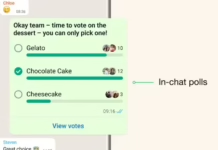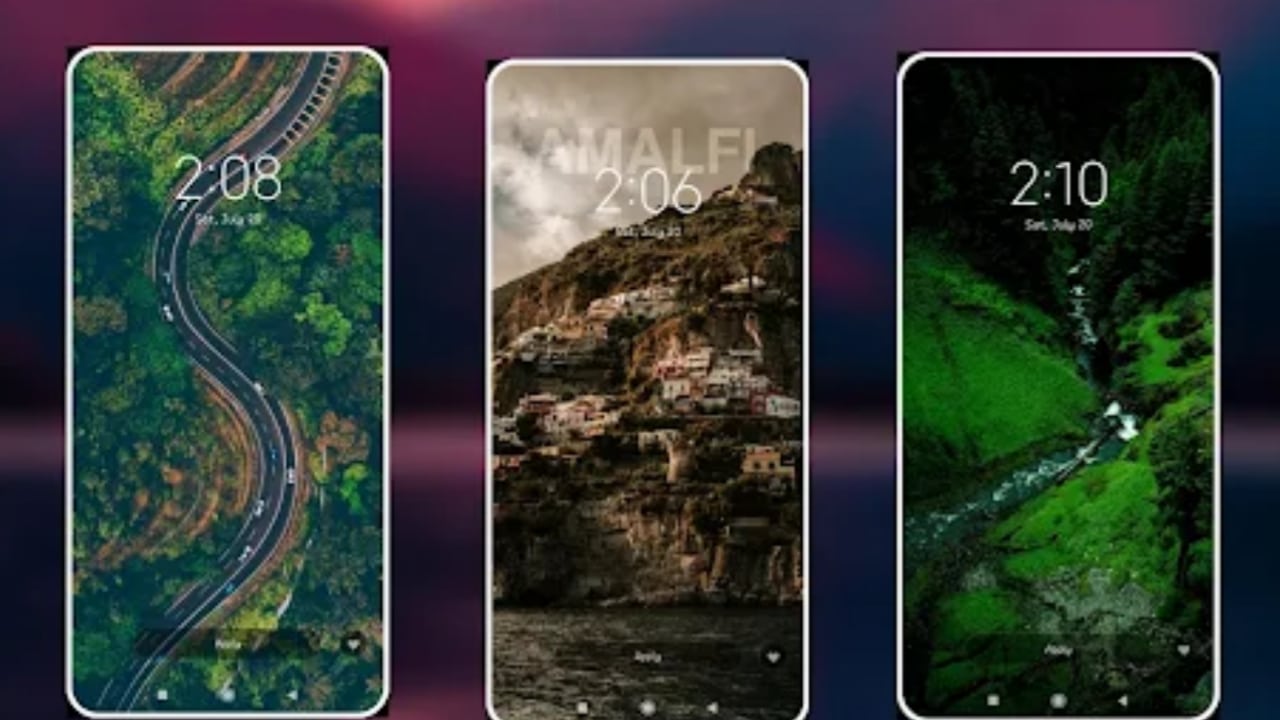In the ever-evolving landscape of digital communication, Meta-owned WhatsApp has once again raised the bar by introducing the new “Secret Code” feature. T
his cutting-edge addition is designed to empower users with an enhanced layer of privacy, allowing them to safeguard their private conversations through personalized passwords.
In this comprehensive exploration, we will delve into the intricacies of this new feature, its functionalities, and its implications for user privacy.
also read: How to Lock WhatsApp Chats: A Step-by-Step Guide
Understanding the Significance of Secret Code
The Secret Code feature emerges as a pivotal development in response to the growing need for robust privacy measures.
Acting as an additional shield for sensitive chats, it seamlessly complements the previously introduced Chat Lock.
This combination serves a dual purpose – protecting conversations from prying eyes and ensuring that users retain control over their private interactions.
The Chat Lock, unveiled by WhatsApp in May, paved the way for enhanced security by segregating locked chats into a distinct folder.
Accessible only through the device password or biometrics, it laid the groundwork for the Secret Code feature.
The Secret Code takes this a step further by allowing users to set unique passwords for their locked chats.
This distinct password, separate from the one used to unlock the device, adds an extra layer of security, fortifying the confidentiality of each conversation.
Customizing Your Privacy with Unique Passwords
One of the standout features of the Secret Code is its emphasis on customization. Users now can set individual passwords for their locked chats.
This departure from a one-size-fits-all approach is a significant stride towards empowering users with personalized security options. The uniqueness of these passwords adds a dynamic layer to the security framework, making it more resilient against potential breaches.
The rationale behind this customization is clear – a tailored password ensures that even if an unauthorized user gains access to the device, the protected chats remain off-limits.
This separation between device unlock codes and chat passwords not only enhances security but also provides users with a sense of control over the privacy of their conversations.
Concealing Locked Chats for Maximum Privacy
WhatsApp has ingeniously incorporated a feature in Secret Code that allows users to go a step further in concealing their locked chats.
The option to hide the Locked Chats folder from the main chat list is a strategic move to enhance privacy.
By making these conversations accessible only through the search bar with the secret code, WhatsApp ensures that users can maintain the utmost discretion in managing their private communications.
This discreet handling of sensitive information aligns seamlessly with WhatsApp’s commitment to user privacy.
In an era where data breaches and privacy concerns are at the forefront of digital discourse, this feature becomes a beacon of assurance for users who seek not only security but also control over their digital interactions.
Navigating the Digital Landscape: Recent Developments and Future Implications
The introduction of the Secret Code feature comes on the heels of WhatsApp’s “Protect IP Address in Calls” feature.
This recent addition masks users’ IP addresses during calls, relaying them through WhatsApp servers and adding an extra layer of anonymity.
The combined impact of these features showcases WhatsApp’s dedication to comprehensive user privacy.
However, the evolving digital landscape is not without its challenges.
Recent calls by the French government urging officials to switch from popular messaging apps like WhatsApp, Signal, and Telegram to homegrown alternatives highlight the ongoing concerns about the security of digital communication platforms.
The government’s claim, stating that these widely used apps are not devoid of security vulnerabilities, has sparked a debate in the tech community.
Meredith Whittaker, president of Signal, and Will Cathcart, the head of WhatsApp, have both expressed skepticism about the French government’s decision.
Whittaker went on record stating that the claim lacks evidence and is dangerously misleading, especially coming from the government.
Cathcart echoed this sentiment, emphasizing that WhatsApp shares the same opinion.
This ongoing debate underscores the complexities of ensuring secure communication in the digital age.
As governments grapple with the balance between convenience and security, users are increasingly reliant on features like the Secret Code to take matters into their own hands.
Wind Up: Embracing Innovation for a Secure Future
The unveiling of WhatsApp’s Secret Code feature marks a significant stride towards fortifying user privacy in the digital realm.
By combining elements of customization, additional layers of security, and discreet accessibility, this feature stands as a testament to WhatsApp’s commitment to adapting to the evolving needs of its user base.
As the digital landscape continues to transform, and concerns about privacy and security persist, embracing innovations like the Secret Code becomes paramount.
This feature not only addresses existing vulnerabilities but also sets a precedent for future developments in the realm of secure communication.
In a world where personal and professional conversations are increasingly conducted through digital platforms, the onus is on technology companies to provide robust solutions that prioritize user privacy.
WhatsApp’s new Secret Code feature is a step in the right direction, empowering users to take control of their digital interactions and communicate with confidence in an interconnected world.

















